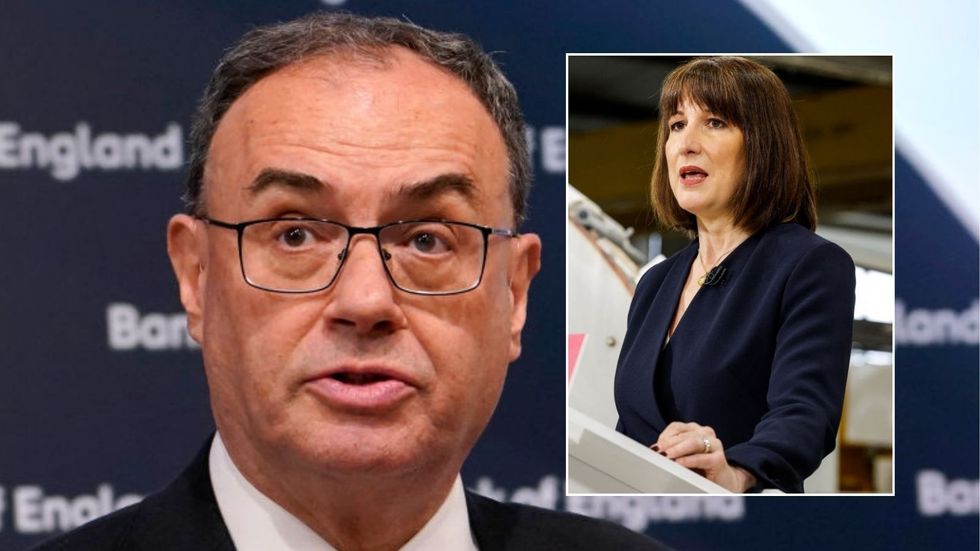Richard Tice criticises Rachel Reeves' speech on the economy
GBNEWS
Andrew Bailey has cautioned against policy makers rushing to rip up rules
Don't Miss
Most Read
Trending on GB News
Andrew Bailey has issued a stark warning against hasty financial deregulation, emphasising there is "no trade-off" between economic growth and financial stability.
Speaking at the University of Chicago Booth School of Business in London, Bank of England governor cautioned against an emerging "reaction taking place against regulation."
The central bank chief specifically addressed the pushback against financial stability measures implemented after the 2008 crisis.
Bailey stressed: "We must not forget the lasting damage done," urging policymakers to avoid breaking down regulations just for political gain.
His warnings align with concerns raised by 50 economists and policy experts who in December cautioned Chancellor Rachel Reeves about the risks of expanding the City's role.
The experts responded to a Treasury consultation, warning that deregulating financial services could undermine the Government's economic growth objectives.

Andrew Bailey has issued a stark warning against hasty financial deregulation
GETTY
Their intervention came after Reeves described the UK's financial services sector as "the crown jewel in our economy" and suggested post-crisis regulations had "gone too far."
The Chancellor has already modified the Financial Conduct Authority's remit to prioritise the sector's growth and competitiveness alongside consumer protection.
Bailey comments follow a shift in political attitudes to regulation. The US under President Donald Trump, the European Union and the UK are all revisiting current rules.
Introduction of the so-called Basel 3.1 financial stability framework for banks has been postponed in all three regions.
He said: "It is wise to avoid the idea that regulation is the best solution to any problem, but let's not fall into the opposite notion that it is by definition and always the worst available option."
LATEST DEVELOPMENTS:
The Governor emphasised the importance of learning from past crises. He said: "The financial crisis demonstrated that there is no sustainable growth without financial stability," pointing to the prolonged impact of the 2008 crash.
Bailey drew particular attention to the expansion of non-bank finance since 2008, suggesting regulators may be "underestimating changes in financial markets."
The Bank of England has responded by implementing system-wide stress testing to identify potential issues early.
They has also developed a new emergency tool, the Contingent NBFI Repo Facility, to provide liquidity support for pension funds and other non-bank institutions during crises.
Bailey emphasised that the non-bank sector's growth makes it "critical that we have and develop tools of assessment and intervention."
He noted that interventions need not always mean more regulation, suggesting liquidity facilities and improved financial infrastructure as alternatives.
The Labour Government has made deregulation a key part of its growth agenda, including potential changes to bank rules to ease mortgage lending.
 The Chancellor has been dealt another blow to her fiscal agenda as economy growth forecasts have been downgraded GETTY
The Chancellor has been dealt another blow to her fiscal agenda as economy growth forecasts have been downgraded GETTY Bailey directly challenged the notion that post-crisis regulations were responsible for sluggish economic performance.
He said: "We lost financial stability and it had a very serious effect and it's had a prolonged effect," attributing the UK's poor growth partly to the 2008 recession.
The governor emphasised that any weakening of smaller bank capital requirements deserves careful scrutiny.







